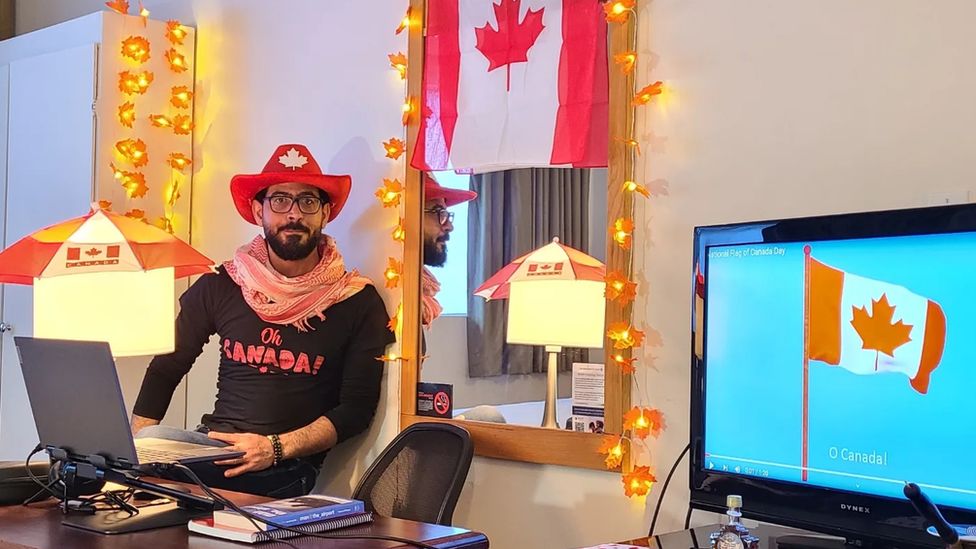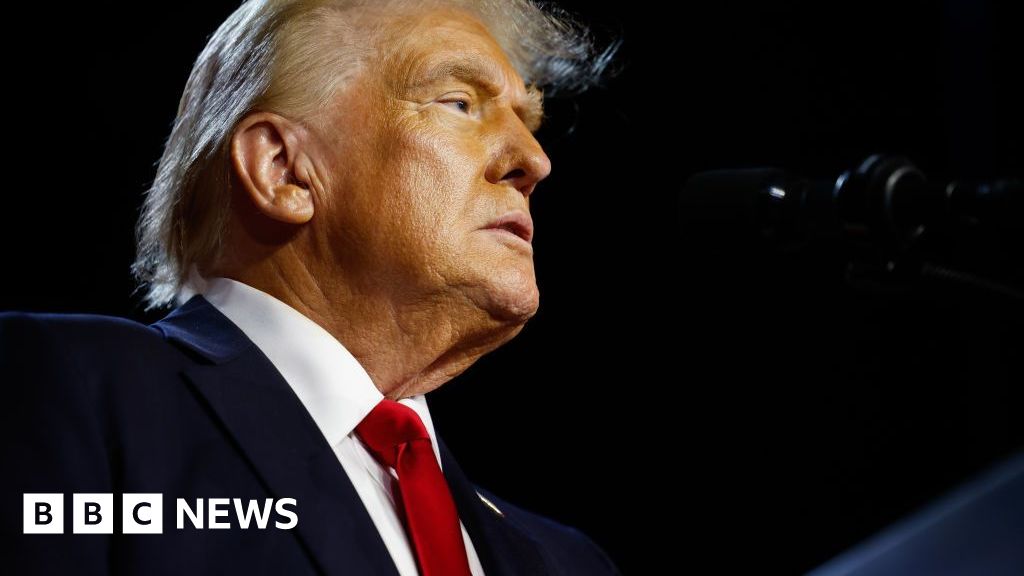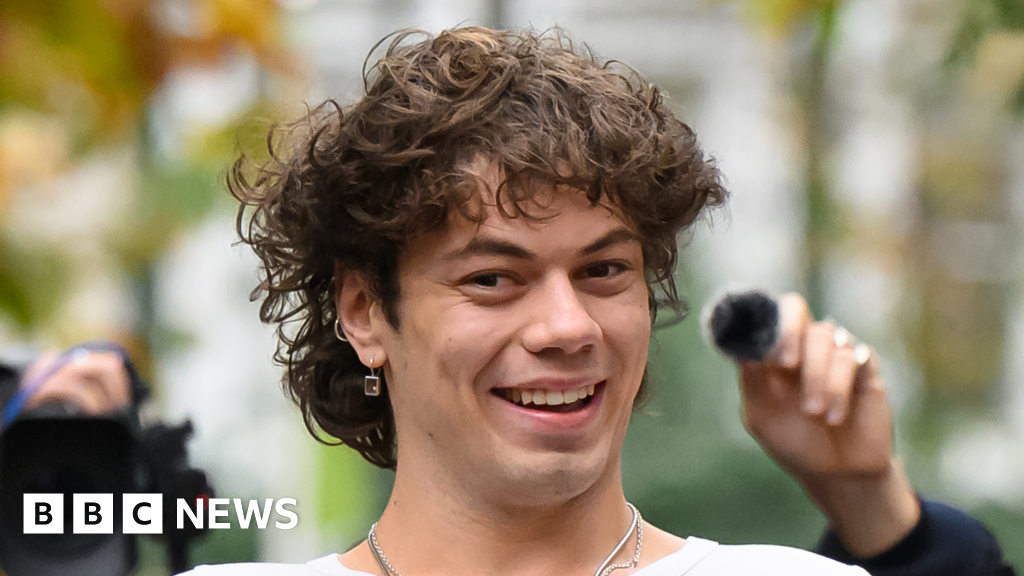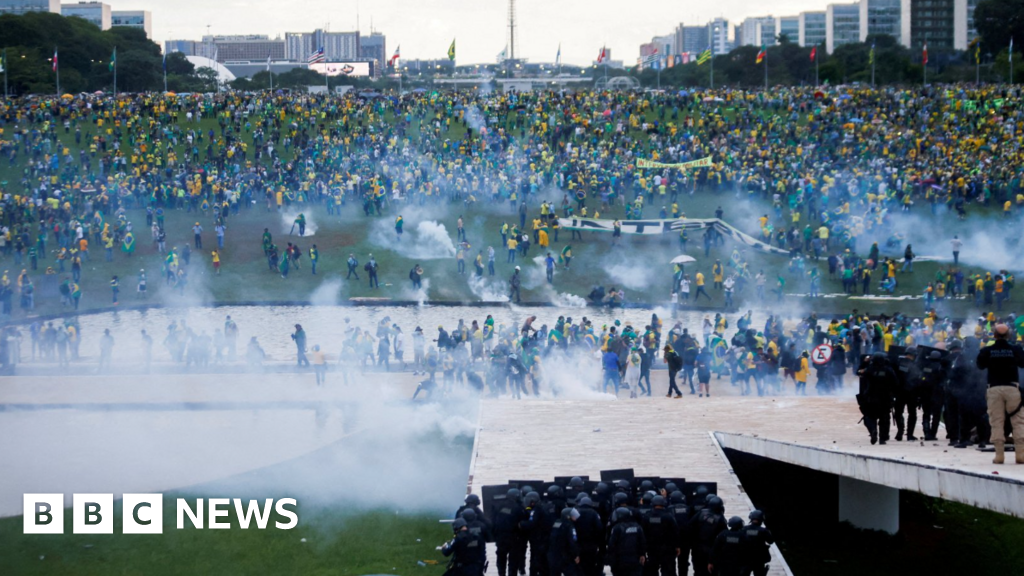ARTICLE AD BOX
 Image source, Hassan al-Kontar
Image source, Hassan al-Kontar
Hassan al-Kontar attending a remote Canadian citizenship ceremony
By Robin Levinson-King & Sam Cabral
BBC News
It was 2018 when Hassan al-Kontar found himself stranded in a Malaysian airport for seven months, unable to leave for fear of his life.
Five years on, the Syrian refugee, 41, has now become a Canadian citizen.
"Today I became more Canadian, but I considered myself Canadian since the day one," he told the BBC.
Though in many ways joyful, it was also bittersweet, he said, as "it came with ultimate price".
His homeland is in ruins, and he has spent more than a decade away from his loved ones.
Mr al-Kontar's arrival in his adopted hometown of Whistler, in British Columbia (BC) had been preceded by a sojourn that saw him bouncing between countries before becoming stranded at the Kuala Lumpur airport.
He had gone to Malaysia in 2017 from United Arab Emirates, where he had been working since before 2011, but was kicked out after his visa expired.
Unable to return to Syria, where he would have likely been conscripted into the army or imprisoned amidst its civil war, he went to one of the few countries in the world that allows Syrians to enter the country without a visa and stay for 90 days.
When that grace period expired, he tried to enter Ecuador and then Cambodia, but to no avail.
Cambodian officials confiscated his passport and sent him back to Malaysia, leaving him stateless.
No country would let him in, and Mr al-Kontar resigned himself to stay in the airport for the long haul.
Over seven months at Kuala Lumpur International Airport, he began to tweet out video diaries, helping connect his own personal predicament to the broader crisis affecting millions of displaced Syrian refugees. Some 6.8 million people have fled the country since 2011.
After seven months stuck in an airport, Syrian man Hassan al-Kontar tells the BBC what it was like to find a new home in Canada
The videos propelled him to international fame, and his story garnered the attention of three Canadians who stepped in to help.
The Canadian government allows private groups and individuals to sponsor refugees, by raising funds to cover the first year of their lives in Canada and providing social support.
The BC Muslim Association agreed to sponsor Mr al-Kontar, while the trio of Good Samaritans lobbied the Canadian government and Malaysian officials to let him come to the country. Meanwhile, he spent two months in a Malaysian refugee detention centre, where he said he was interrogated hundreds of times.
Image source, Hassan al-Kontar
Last year, from his home in Canada, he was able to help his family move from Syria - where he said there was no medicine and no food - to Egypt.
But in the 15 years since he has been away, he missed the birth of his niece, and the death of his father in 2016.
"It cost me a father, I was not there to say goodbye to him when he needed me the most. So that is what this day means to me," he said of his naturalisation on Wednesday.
Mr al-Kontar previously told the BBC that, when he landed on Canadian soil, he knew he was home: "The minute I put a foot in Vancouver airport, I felt the difference."
Since then, he has continued to raise awareness for the plight of refugees around the globe, wrote a book about his ordeal, and began working for the Canadian Red Cross. During Covid, he helped with the province's mobile vaccination efforts.
"I think I saw more BC than a lot of Canadians," he said.
He has worked hard to better himself, taking dozens of online courses, and has been promoted to work in flood recovery, he said.
For four years, he was stateless, which made travel basically impossible. Now that he can apply for a Canadian passport, he hopes he can travel to other countries to help other refugees who are displaced.
"As a refugee, we are not only people who are trying, seeking help, powerless, hopeless people," he said. "We are actually trying to find an opportunity to prove ourselves."

 1 year ago
30
1 year ago
30








 English (US)
English (US)